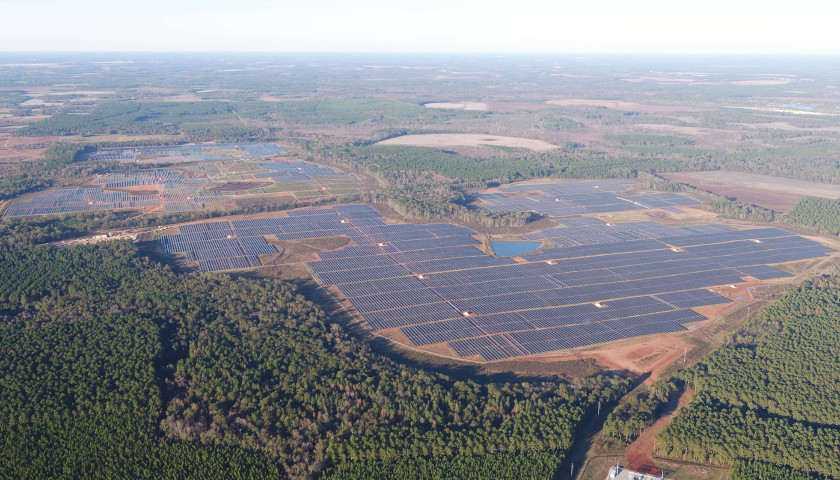Staff at the Phil Bredesen-backed Silicon Ranch announced in a press release this week that they have acquired the solar farm company Clearloop.
Silicon Ranch has a history of ethics issues.
Bredesen, a Democrat, is a former governor of Tennessee and a former U.S. Senate candidate.
Clearloop will continue to operate under its brand and under CEO Laura Zapata. Both companies are based in Nashville and will share office space at Silicon Ranch’s headquarters downtown. The press release did not disclose the terms of the deal.
“The acquisition of Clearloop expands Silicon Ranch’s offering to the growing number of corporate buyers who are seeking a wider range of options to meet not only their renewable energy targets, but also their decarbonization and broader ESG goals,” the press release said.
“Clearloop’s mission of cleaning up the grid in communities otherwise getting left behind by using tangible, traceable carbon offsets ties the social benefits directly with the environmental and economic impacts of new renewable energy projects.”
Clearloop recently constructed the first solar farm in the nation financed by corporate carbon offsets in Jackson, Tennessee, the press release said.
Georgia Lieutenant Governor Geoff Duncan (R-Cumming) in March praised a deal involving Silicon Ranch and an electric cooperative in his state.
Silicon Ranch has personally benefited from policies that Bredesen enacted as governor. As governor, Bredesen had long touted the benefits of solar energy.
In 2009, for instance, Bredesen used $62.5 million in federal stimulus money to fund two solar-related projects under what was known as the Volunteer State Solar Initiative. The first project, the Tennessee Solar Institute, is at the University of Tennessee and Oak Ridge National Laboratory campuses in Knoxville and Oak Ridge. The second project, the West Tennessee Solar Farm near Brownsville, is a five-megawatt 20-acre power generation facility. In 2009 Bredesen described that as one that helps with educational, research, and economic development matters.
Also in 2010, Silicon Ranch subleased office space from Pathway Lending, a company that had economic development interests with the state while Bredesen was governor.
“Such involvement on the governor’s part might serve as additional violations of the state’s Guiding Principles of Ethical Conduct for State Officials,” according to a 2010 Tennessee Watchdog article.
Those guiding principles warn elected officials against even the appearance of a conflict of interest when it comes to financial interests.
Bredesen rakes in millions of dollars off deals involving Silicon Ranch Corp. by pitching solar projects that appear on paper to offer a cheaper alternative to coal. But under closer examination, the Silicon Ranch numbers are skewed by federal tax credits that subsidize its solar-energy industry.
Nick Loris, of the Heritage Foundation, a Washington, D.C.-based think tank, said in 2018 that solar is more expensive. He also said solar isn’t as effective an energy saver as people in government might lead Americans to believe. Loris said solar has only hobbled along as far as it has because of government subsidies and tax incentives.
The government, Loris went on to say, “props up companies that couldn’t compete in a marketplace otherwise.”
That’s corporate welfare, Loris said.
Political activists in 2018 called out Bredesen during his U.S. Senate run that year for pumping millions into the solar industry as governor of Tennessee and then launching Silicon Ranch while still governor.
– – –
Chris Butler is an investigative journalist at The Tennessee Star. Follow Chris on Facebook. Email tips to [email protected].
Photo “Silicon Ranch Solar Panels” by Silicon Ranch.






Good ole Phil. What a crook. And now he is destroying the landscape and environment with acres and acres of big panels. Don’t you just love it when the filthy rich get on their mighty high horses and turn everything they touch into brown smelly stuff?